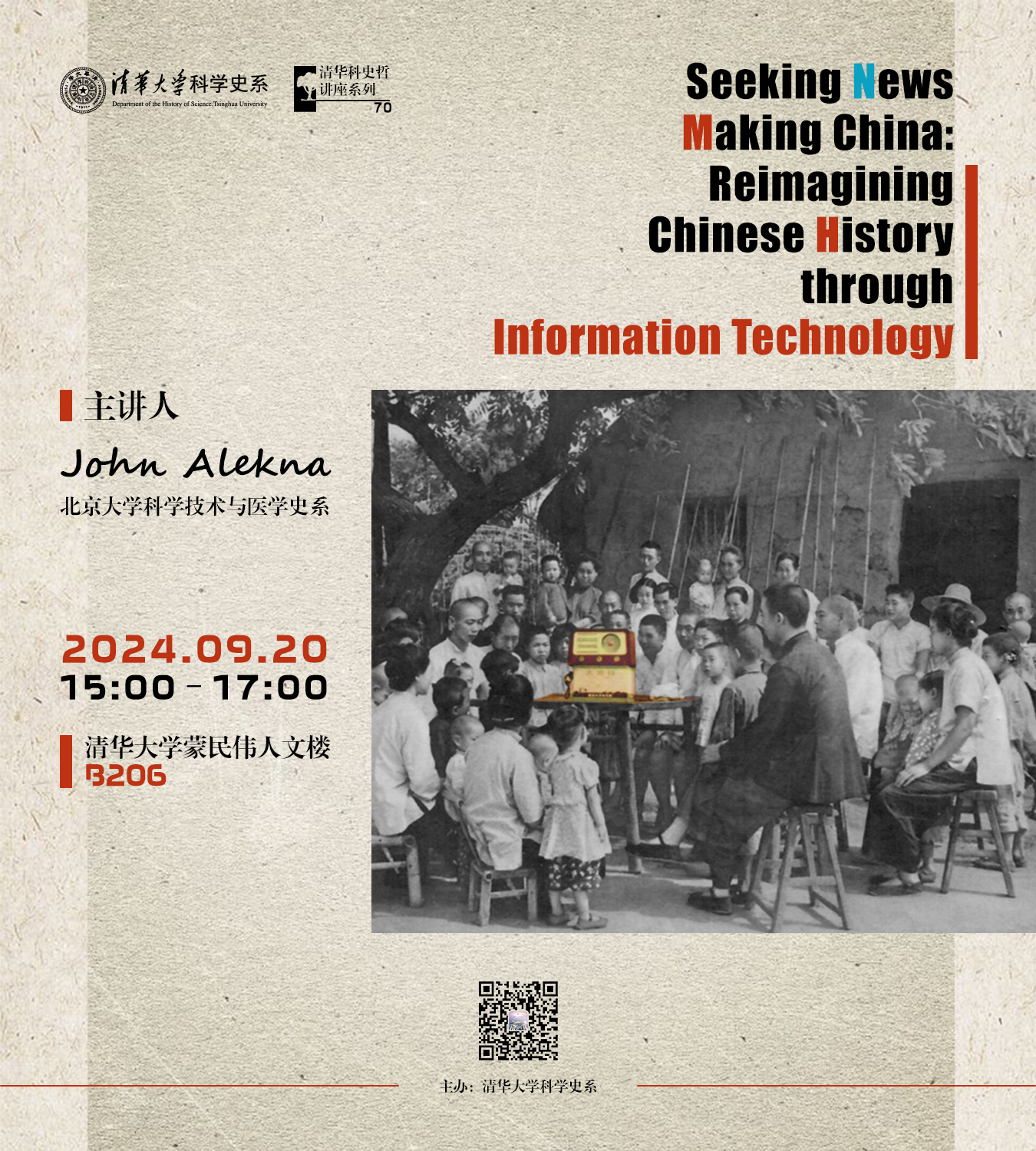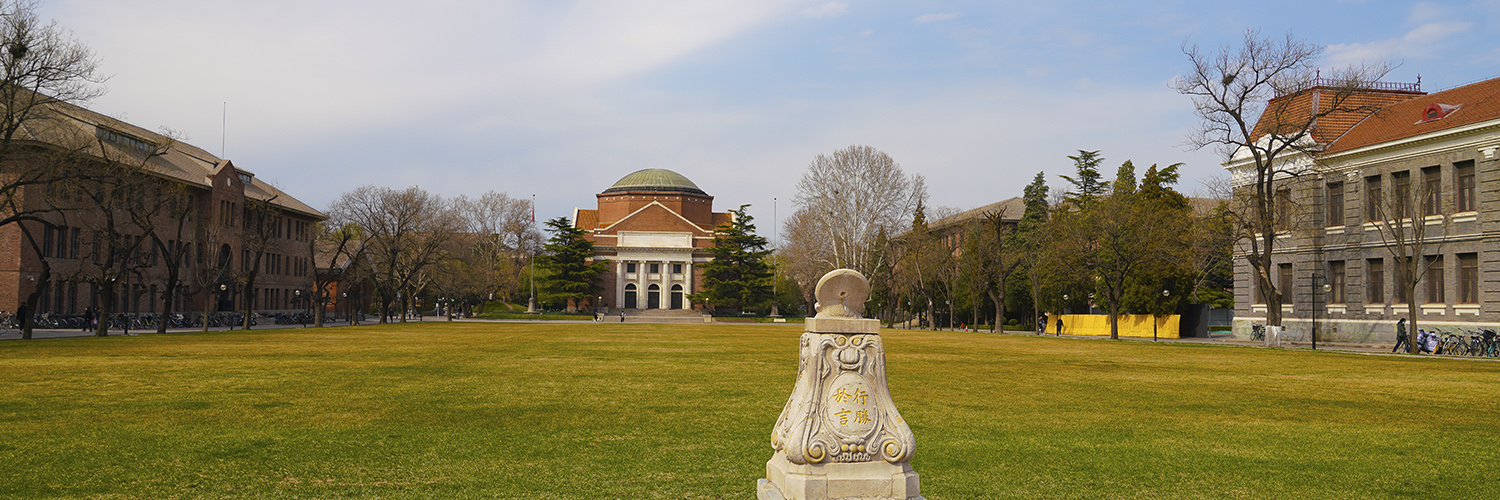主 题:Seeking News, Making China: Reimagining Chinese History through Information Technology
主讲人:John Alekna(北京大学科学技术与医学史系)
时 间:2024年9月20日 15:00—17:00
地 点:清华大学蒙民伟人文楼B206

讲座摘要:
Over the last 20 years, developments in communications technology have overturned key aspects of foreign political systems and media landscapes. Yet this phenomenon is hardly new. Interlocking technological, informational, and political revolutions have occurred many times in the past. John Alekna traces one example, the history of news in twentieth-century China, to demonstrate how large structural changes in technology and politics are heard and felt. Indeed, scrutinizing the flow of news can reveal much about society and politics—illustrating who has power and why, and uncovering the connections between different regions, peoples, and social classes. Taking an innovative, holistic view of information practices, Alekna weaves together both rural and urban history to tell the story of the rise of mass society through the lens of communication techniques and technology, showing how a news revolution can fundamentally reorder political geography.
Alekna’s recent book thus explains the emergence of mass society—one theoretically capable of universal economic and political participation—through the dialectical interaction of information technologies and social practices. This is what it calls the “technopolitical process.” By looking at the development of this process we can trace a mass society which emerges outside of concepts like Party, State, Nation, Empire, or Consumerism. These things are possible expressions of a mass society, but none are the same as it. Furthermore, he argues that this process was driven to a substantial degree by the desire for news. In other words, a mass society does not emerge because of Darwinism and War (Tilley: State Makes War, War Makes State), nor economic pressures (as Marx argued), nor because of extractive impulses (Scott: Seeing like a State). Instead, the author offers a voluntarist interpretation of the emergence of mass-oriented social formations; a mass society emerged because people wanted the greater access to information that it offers.
主讲人简介:

John Alekna is Assistant Professor of the History of Science at Peking University. His research focuses on information, technology, and the emergence of modernity in nineteenth- and twentieth-century Asia. He is currently working on a biography of a Qing period scientist-turned-explorer who led an 1879 expedition across the Himalayas into India. At Beida, he teaches the History & Philosophy of Science, the History of Science in China, and Information as Material, Theory, and Practice.


